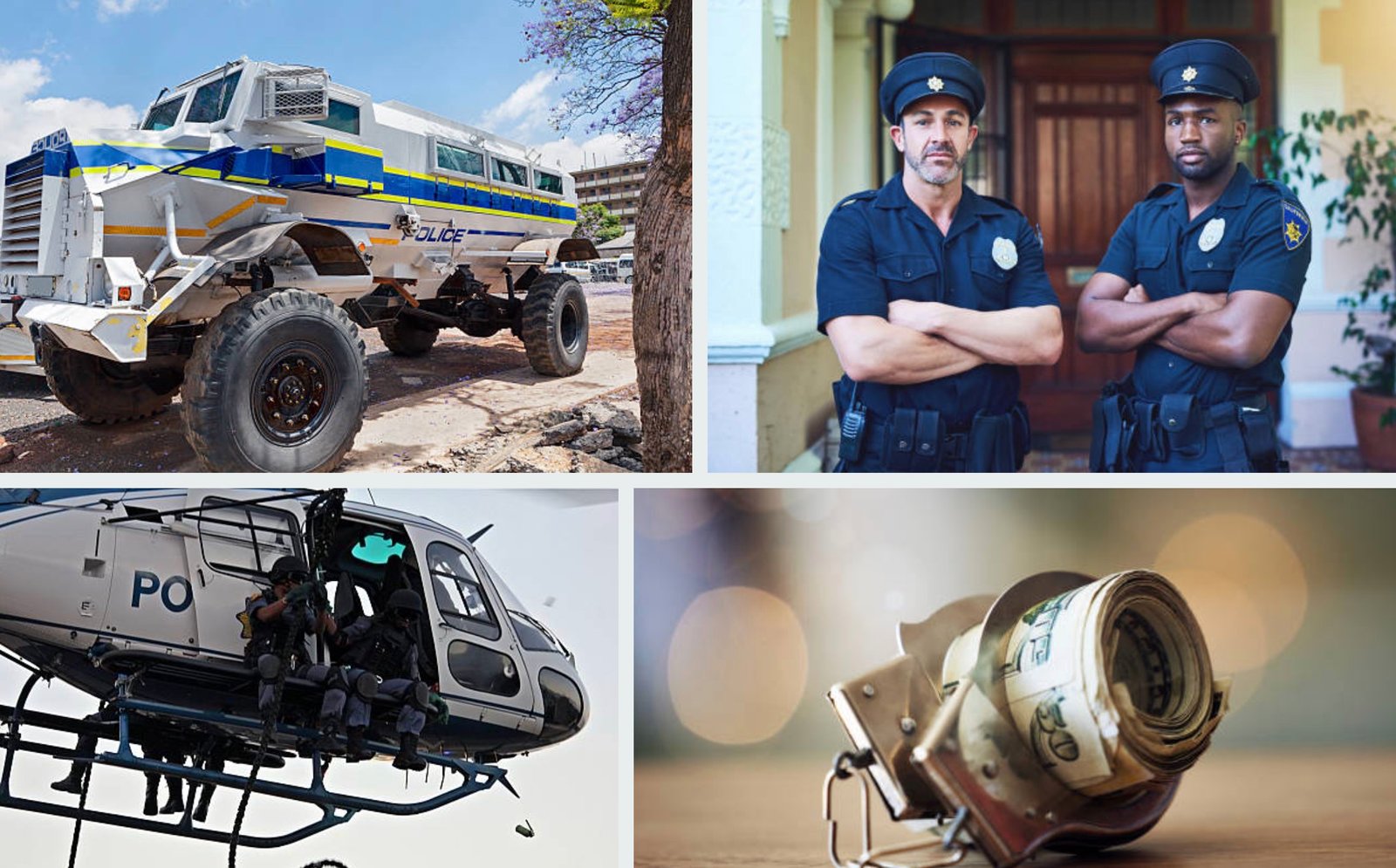One may ask, “What is the difference between metro police ans SAPS?”. Well, the main difference between metro police and SAPS (South African Police Service) is their scope of operation and the specific duties they perform.
Here’s a comparison of the Metro Police and the South African Police Service (SAPS) in a table format:
| Aspect | Metro Police | South African Police Service (SAPS) |
|---|---|---|
| Jurisdiction | Limited to specific metropolitan areas such as Johannesburg, Cape Town, and Durban. | National coverage, including both urban and rural areas across South Africa. |
| Primary Responsibilities | Primarily enforcing traffic laws, municipal by-laws, and maintaining public order in cities. | Investigating serious crimes, maintaining national security, and general law enforcement. |
| Organizational Structure | Part of local municipal governments. | A national entity under the Department of Police, South African government. |
| Training Focus | Training is centered around urban law enforcement, traffic control, and local by-law enforcement. | Training encompasses a wide range of law enforcement techniques, including serious crime investigation. |
| Role in Public Safety | Focus on local-level public safety issues, especially related to urban environments. | Addresses a broader spectrum of public safety issues at a national level. |
| Collaboration with Other Agencies | Often works in collaboration with SAPS for certain operations but primarily operates independently within their jurisdictions. | Collaborates with various national and local law enforcement agencies, including Metro Police. |
The Difference Between Metro Police and SAPS Explained:
- Scope of Operation:
- Metro Police: They are responsible for policing in specific metropolitan areas. Metro police departments exist in major South African cities like Johannesburg, Cape Town, and Durban. Their jurisdiction is limited to the metropolitan area they serve.
- SAPS: SAPS is a national police force. It operates across all of South Africa and is responsible for general law enforcement throughout the country. SAPS has a broader jurisdiction compared to metro police, covering rural areas, small towns, and large cities alike.
- Duties and Responsibilities:
- Metro Police: Their primary focus is on traffic control, enforcing municipal by-laws, and preventing crime in urban areas. They deal with issues like traffic violations, illegal parking, and minor public disturbances. They also play a role in local crime prevention but usually in support of SAPS.
- SAPS: SAPS handles more serious criminal investigations, border security, and maintaining public order. They investigate crimes ranging from theft and assault to high-profile cases like murder and drug trafficking. SAPS also provides support in times of national emergencies.
Both forces work together to ensure safety and law enforcement in South Africa, but their roles are distinct, reflecting their different operational scopes and responsibilities.
What Does Metro Police Do in South Africa?
The Metro Police in South Africa are primarily responsible for enforcing traffic laws, maintaining public safety, and ensuring compliance with local municipal by-laws. They focus on issues such as traffic management, preventing crime in urban areas, and responding to minor public disturbances. Their duties can also include enforcing regulations related to public spaces, such as parks and beaches, and dealing with minor criminal offenses within the city limits.
How Much Is the Metro Police Stipend?
The stipend for metro police trainees in South Africa can vary depending on the city or municipality. Generally, during training, individuals may receive a modest stipend that helps cover basic expenses. The exact amount can differ based on the specific metropolitan police department’s policies and the region’s cost of living.
How Long Does It Take to Be a Metro Police in South Africa?
Becoming a metro police officer in South Africa typically involves a process that includes training, which can last several months, and often a probation period upon completion of the training. The exact time can vary depending on the specific requirements of the metropolitan police department and the individual’s progress and performance during the training period.
How Many Months Is Metro Police Training?
Metro Police training duration can vary, but it typically lasts around 18 months. This period includes both theoretical classroom training and practical on-the-job training. The curriculum is designed to equip trainees with the necessary skills and knowledge to perform their duties effectively as metro police officers.
How Long Does It Take to Study Metro Police?
Studying to become a metro police officer, including the time spent in training, is generally an 18-month process. This timeframe encompasses both academic learning and practical fieldwork. The comprehensive training program is structured to prepare candidates for the diverse responsibilities they will face in the field.
Does Metro Police Fall Under SAPS?
No, the Metro Police does not fall under the South African Police Service (SAPS). They are separate entities. The Metro Police are responsible for urban law enforcement and operate under the jurisdiction of their respective metropolitan areas, while SAPS is a national force responsible for broader law enforcement across South Africa.
What Is the Difference Between Metro Police and Traffic Officer?
Metro Police officers have a broader range of responsibilities, including enforcing traffic laws, maintaining public order, and ensuring compliance with municipal by-laws. In contrast, Traffic Officers are primarily focused on road safety, enforcing traffic regulations, and dealing with road traffic offenses. While there is an overlap in traffic law enforcement, Metro Police have additional duties related to urban safety and local by-law enforcement.
Does Metro Police Allow Tattoos?
The policy on tattoos can vary between different metro police departments. Generally, tattoos may be allowed as long as they are not offensive, extremist, sexist, racist, or vulgar, and do not undermine the dignity of the metro police department. Visible tattoos may be subject to specific regulations, and candidates are often advised to disclose them during the recruitment process.

